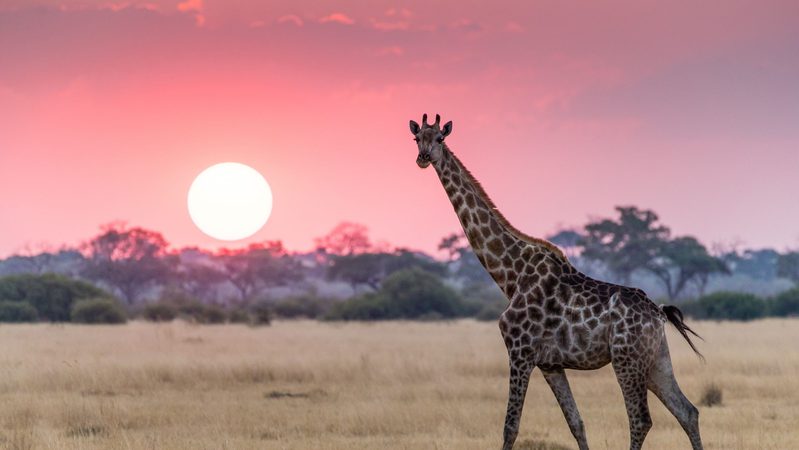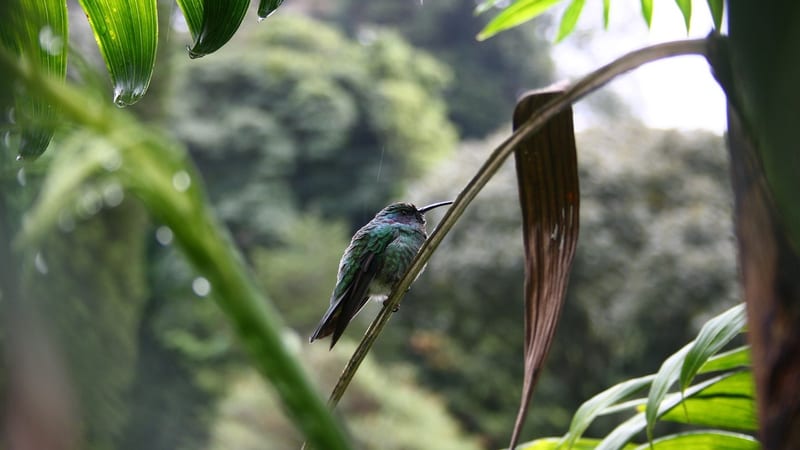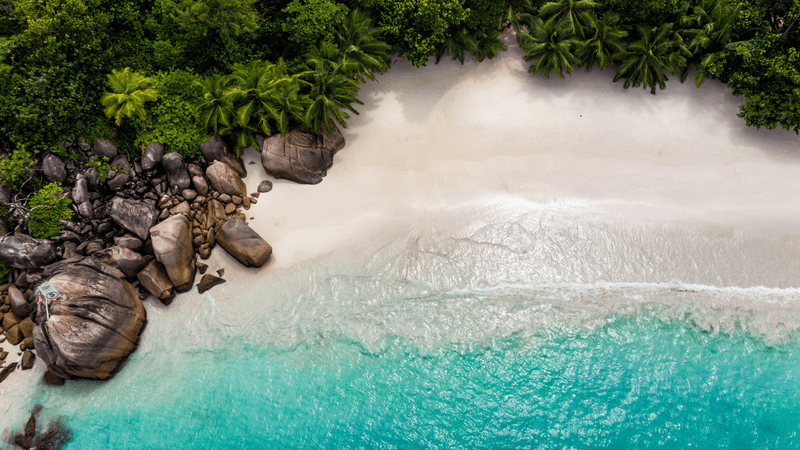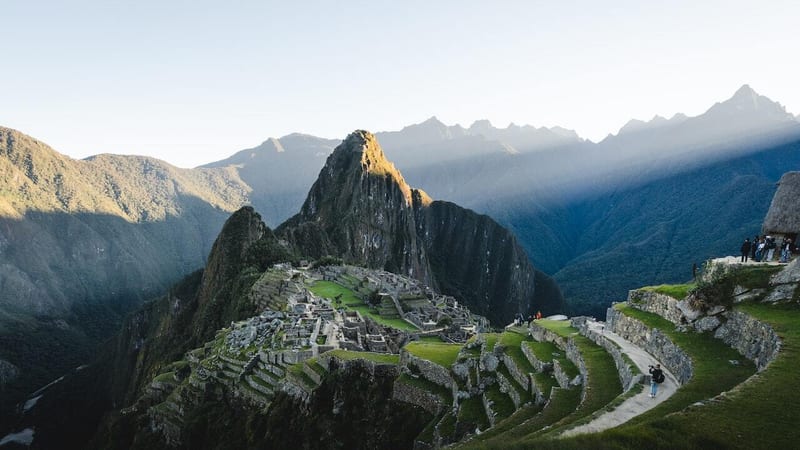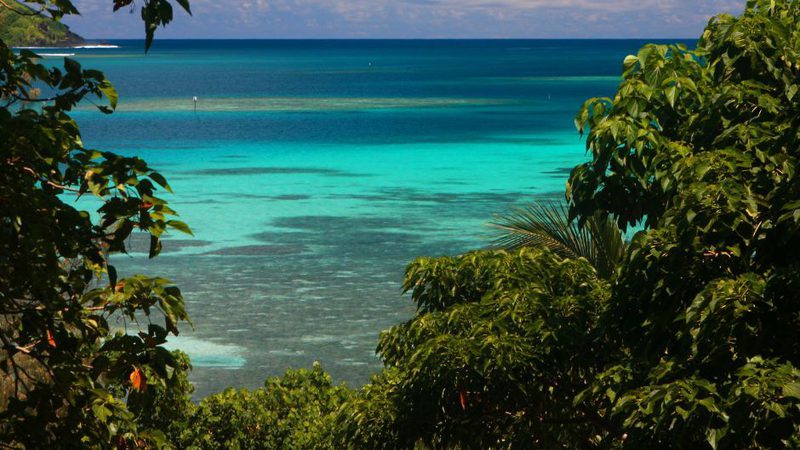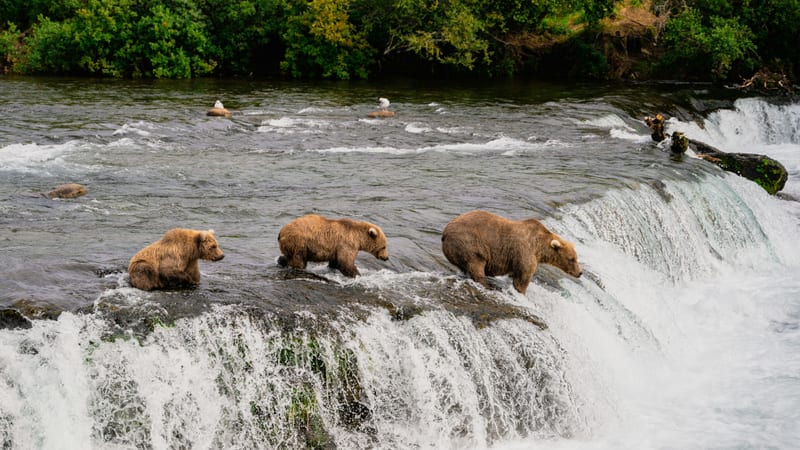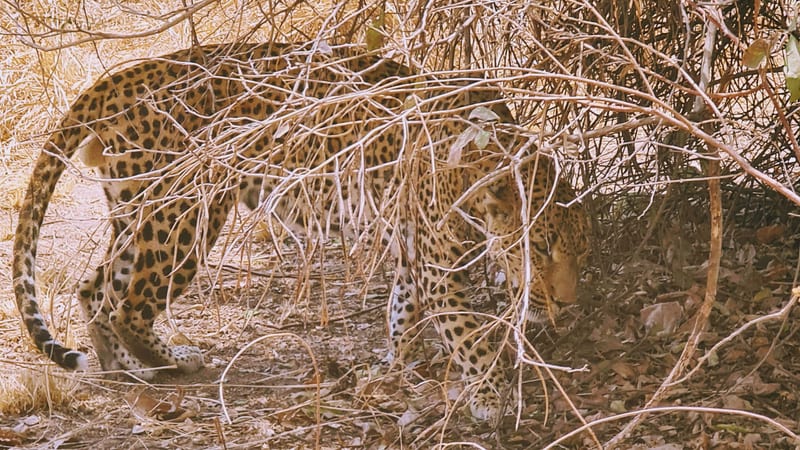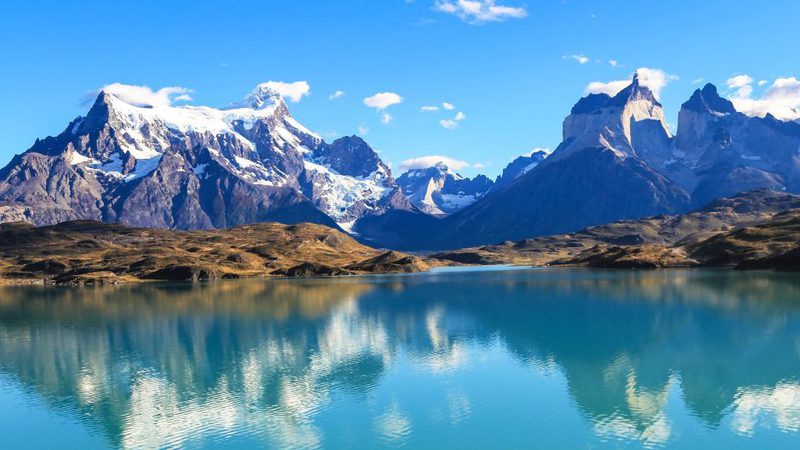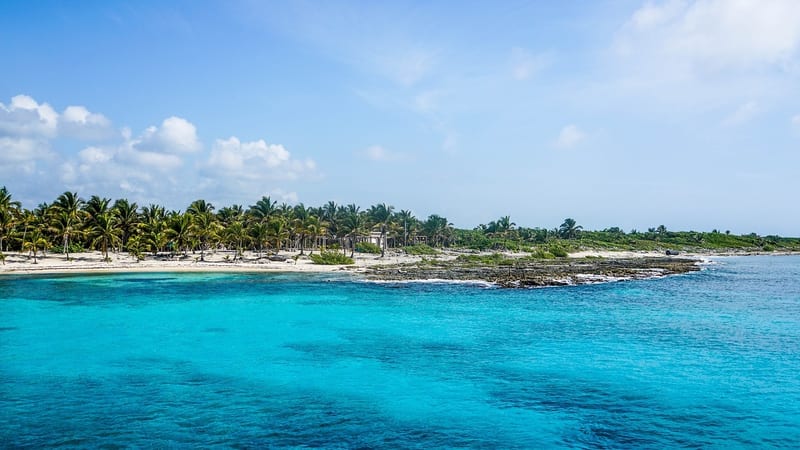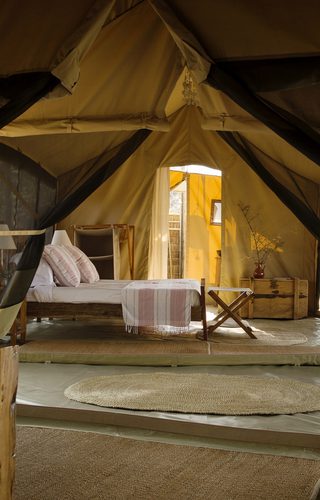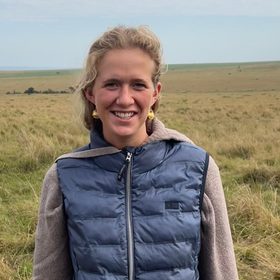Kigelia Ruaha is a simple tented bush-camp offering all those creature comforts that you need.
Location: Kigelia Camp lies deep within Tanzania's Ruaha National Park, located beside a dry riverbed on the remote eastern side of the park. Surrounded by baobab-studded woodland and acacia grassland, it's a true hideaway - guests tents blend seamlessly into their natural setting, and elephants, giraffe and buffalo often wander past unperturbed. With very few visitors in sight, the camp delivers an intimate and authentic safari atmosphere amidst prime wildlife territory.
Rooms: The camp comprises six airy safari tents plus one twin-room family tent - all spacious, canvas-roofed and raised slightly on platforms. Tents come with safari-style bucket showers, flush loos, mosquito-netted beds and compact safes. A standout feature is the star-bed accessible by ladder - sleep under the open sky with cast views over the bush. Interiors are minimalist yet comfortable, letting the environment take the centre stage.
Amenities: Communal camp life unfolds in a central thatched lounge and dining area constructed from reclaimed wood and supported by gentle swaying swing seats. Sundowners and campfire evening sit beneath towering kigelia trees, and flexible dining extends to bush breakfast or al-fresco meals under the stars. A filtered swimming pool offers respite while wildlife wanders nearby. Power and hot water are solar-powered, with a backup generator used sparingly, and intermittent Wi-Fi is available in the manager's office.
Activities: The camp brings Ruaha to life through twice-daily open-vehicle game drives, guided bush walks and night drives for secretive nocturnal species - porcupine, genet, civet or elusive pangolin. The terrain supports unforgettable sightings, form large elephant herds to rare wild dog encounters. Picnic lunches beneath baobabs, elevated star-bed sleepouts and optional village cultural visits enrich your safari days.
Best places to stay in Ruaha Safaris
Ruaha Safaris Trip Inspiration
When to visit Tanzania
Find out the best time to visit Tanzania with our month by month guide.
- Best
- Good
- Mixed
- Jan
- Feb
- Mar
- Apr
- May
- Jun
- Jul
- Aug
- Sep
- Oct
- Nov
- Dec
January
January is mixed when it comes to weather, temperatures rise whilst the chance of rain and humidity increases. It is still a good time to go, as the rates are lower yet the game viewing is still excellent.
- During this time migratory herds are in the Serengeti for calving season, meaning the Ndutu plains are busy.
February
The weather remains hot with a chance of rain in February.
- Meanwhile in the Ndutu Plains the migration is still occurring.
March
March is the calm before the storm, before heavy rains and humidity builds. Visitors can take great advantage of lower rates during the low season.
- Migrating herds start to leave Ndutu, heading West towards Grumeti.
April
April experiences continued periods of heavy rain, we would advise against travel due to the conditions.
May
During may there is periods of heavy rain, we would advise against travel due to the conditions.
June
June heralds the wet season, bringing lush green vegetation which can make spotting game more difficult. It is a particularly great time for birders as parks become populated by migratory birds especially in the South.
- Migration is still in the Grumeti area, heading north.
July
July is the start of peak season, temperatures reach up to 30 degrees and the surrounding land becomes drier and spotting game is becoming easier.
- The migration is in the Northern Serengeti moving towards Kenya.
August
August is peak season, with bush land drying out game spotting becomes much easier. If you want to experience Tanzania game at its best, August is the time to travel.
- The migration still remains in the north.
September
Peak season continues in September, the Northern circuit can be very busy, if you want to avoid crowds it's best to visit the southern parks.
- The end of the migration is still in the north with herds on both side of the Kenyan and Tanzanian borders.
October
Peak season continues into October with good game viewing in the Serengeti and southern parks.
- The migration has now crossed over into Kenya.
November
November is the start of the rainy season, the rains tend to be overnight so it is still a popular time to travel. During this month you can take advantage of low season rates.
- Migration crossing over into the Serengeti can be seen a the Tanzania and Kenya border.
December
Rains continue in December, whilst the temperature and humidity start to build. Venturing out on safari is generally good, with large game still easily spotted.
- Migrating herds in the north travel south back to Ndutu.
Speak to a Tanzania expert today
and start planning your tailor-made holiday

Alistair


